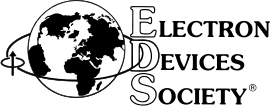- Home
- Publications
- Electron Device Letters
- Editor-in-Chief and Editors
Editor-in-Chief and Editors
EDL Editor-in-Chief
Sayeef Salahuddin
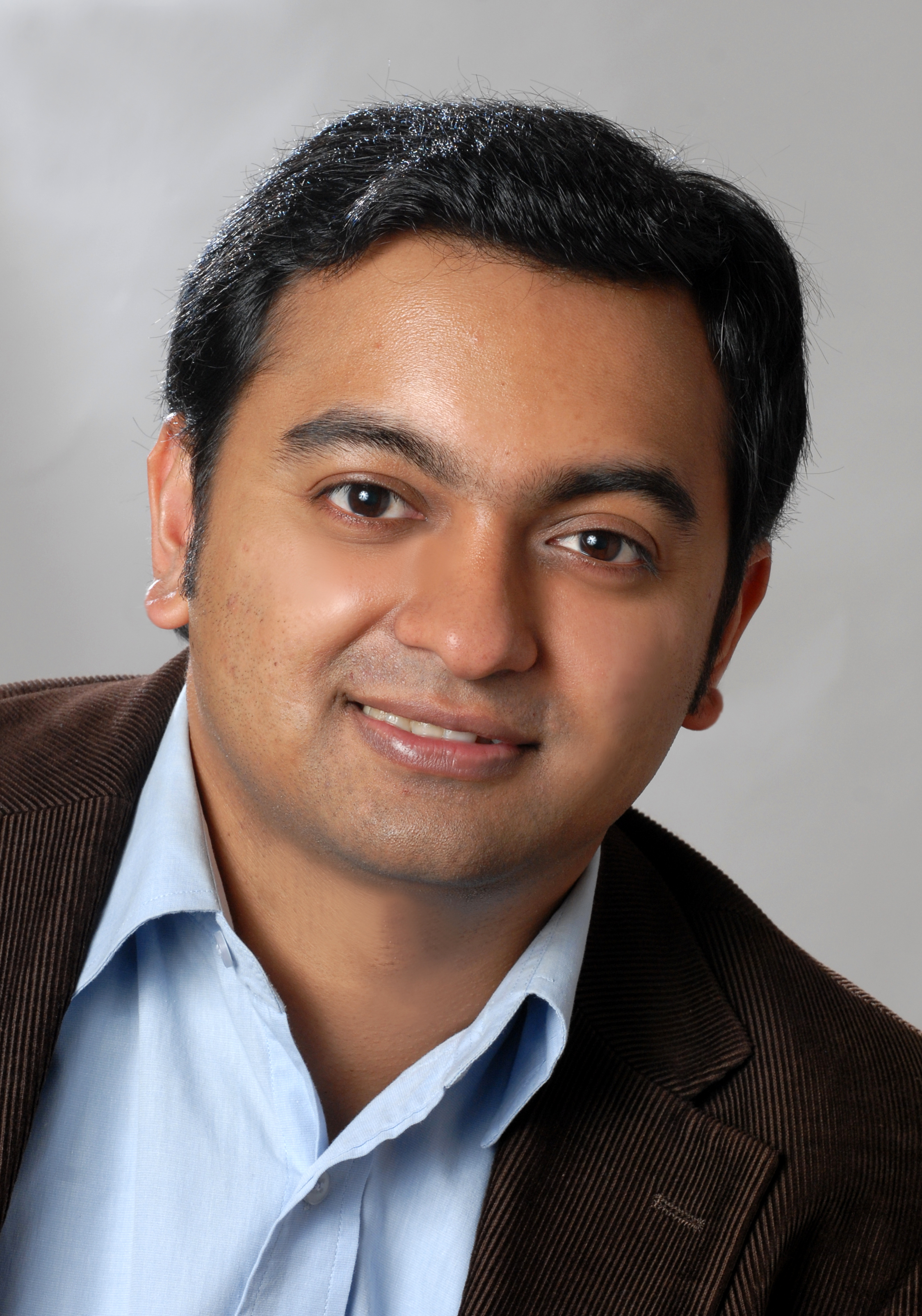
Electrical Engineering and Computer Sciences
Sayeef Salahuddin is the TSMC Distinguished professor of Electrical Engineering and Computer Sciences at the University of California Berkeley. Salahuddin received his B.Sc.in Electrical and Electronic Engineering from BUET (Bangladesh University of Engineering and Technology) in 2003 and PhD in Electrical and Computer Engineering from Purdue University in 2007. He joined the faculty of Electrical Engineering and Computer Science at University of California, Berkeley in 2008.
His work has focused on conceptualization and exploration of novel device physics for low power electronic and spintronic devices. Salahuddin has championed the concept of using 'interacting systems' for switching, showing fundamental advantage of such systems over the conventional devices in terms of power dissipation. This led to the discovery of Negative Capacitance Transistors that allows for sub kT/q subthreshold operation in transistors.
Salahuddin has received the Presidential Early Career Award for Scientist and Engineers (PECASE), the highest honor bestowed by the US Government on early career scientist and engineers. Salahuddin also received a number of other awards including the NSF CAREER award, the IEEE Nanotechnology Early Career Award, the Young Investigator Awards from the Air Force Office of Scientific Research (AFOSR) and the Army Research Office (ARO) and best paper awards from IEEE Transactions on VLSI Systems and from the VLSI-TSA conference. In 2012, Applied Physics Letters (APL) highlighted two of his papers among 50 most notable papers among all areas published in APL within 2009-2012. Salahuddin also received the George E Smith Award from the IEEE Electron Devices Society.
Salahuddin is a co-director of the Berkeley Device Modeling Center and Berkeley Center for Negative Capacitance Transistors. He is also an associate director for the Applications and Systems-Driven Center for Energy-Efficient Integrated NanoTechnologies (ASCENT), a center jointly funded by the Semiconductor Research Corporation and DARPA within the JUMP initiative.
He served on the editorial board of IEEE Electron Devices Letters (2013-16) and was the chair the IEEE Electron Devices Society committee on Nanotechnology (2014-16).
Salahuddin is a fellow of the IEEE and the APS.
EDL Editors
Elaheh Ahmadi - Compound Semiconductor Devices.
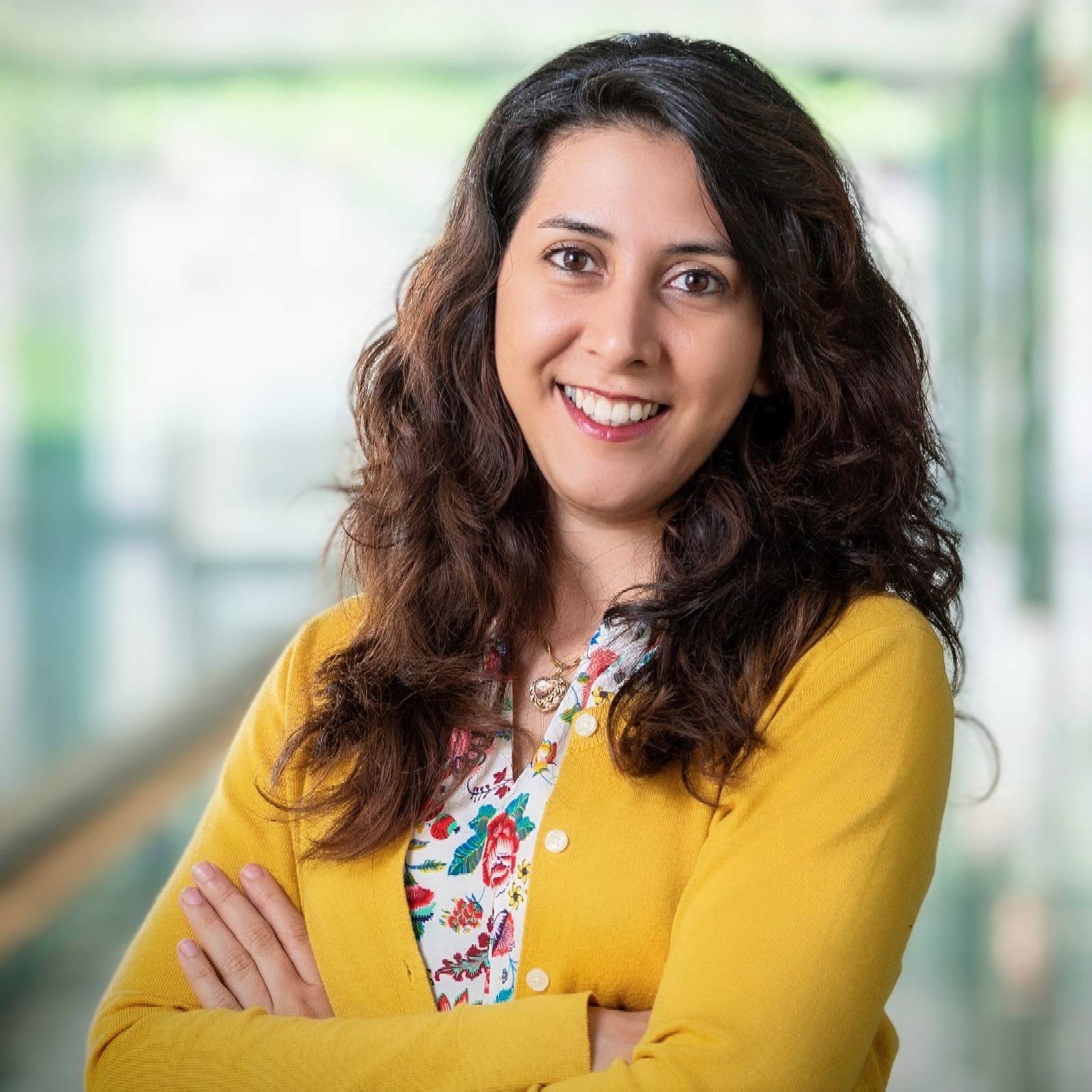
USA
Prof. Ahmadi received her BS and MS degrees both from Sharif University of Technology, Tehran, Iran in 2008 and 2010 respectively. She then joined Prof. Mishra’s group to pursue her Ph.D. at UC Santa Barbara in 2010, where she worked on epitaxial growth and characterization of GaN-based electronic devices. After earning her PhD degree in 2015, she started her postdoctoral research in Prof. Speck’s group working on epitaxial growth and characterization of Ga2O3 devices. She joined the University of Michigan as an Assistant Professor in Jan 2018. She has received several awards including AFOSR and ONR Young Investigator Program Awards in 2020, NSF CAREER and DARPA Young Faculty Awards in 2021, the University of Michigan EECS Outstanding Achievement Award and ISCS Young Scientist Award in 2022.
Núria Barniol - Sensors and Actuators
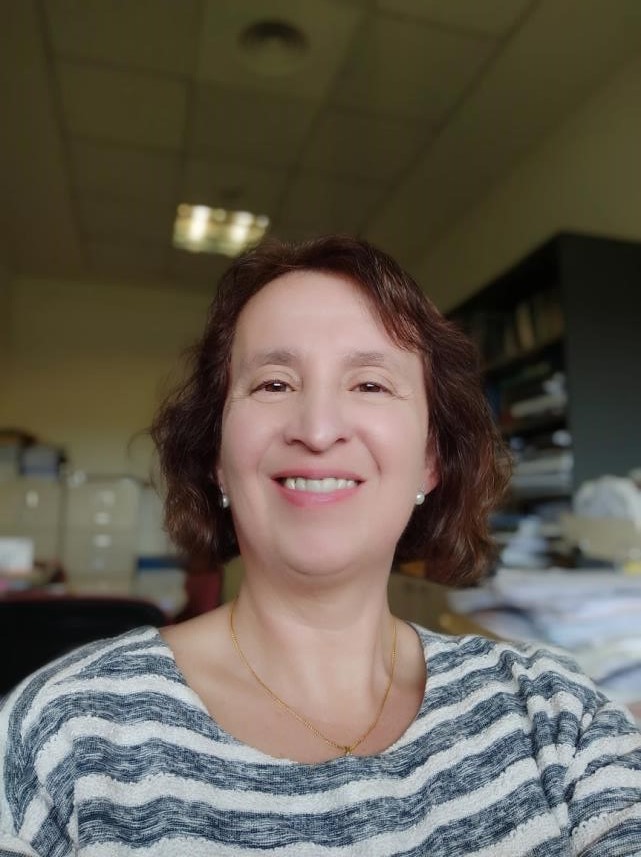
(Spain)
Núria Barniol is a Full Professor at the Electronics Engineering Department of the Universitat Autònoma de Barcelona, in Catalunya, Spain. She received the bachelor degree and PhD degree in Physics from UAB in 1987 and 1992 respectively. She has been working for the last 20 years in the field of MEMS resonators and their integration within CMOS technologies focused on the reduction of dimensions towards nanoelectromechanical devices with optimized CMOS conditioning circuitry. She has co-authored more than 100 research papers and 200 peer-reviewed conferences. She is recipient of the Award of the Universitat Autónoma de Barcelona, for Research Excelence in the area of Technology in 2009. She has been program committee of several conferences including IEEE-IEDM, IEEE-MEMS, MNE, Transducers and Eurosensors. She will be the co-chair in the IEEE-MEMS 2021 conference. Her research interests are now focused on the study of novel piezoelectrical micro/nanometric ultrasonic transducers, their integration with CMOS towards efficient biometrics systems, gesture recognition as well as untouched particle manipulation in liquid.
Pedro Barquinha - Thin Film Transistors
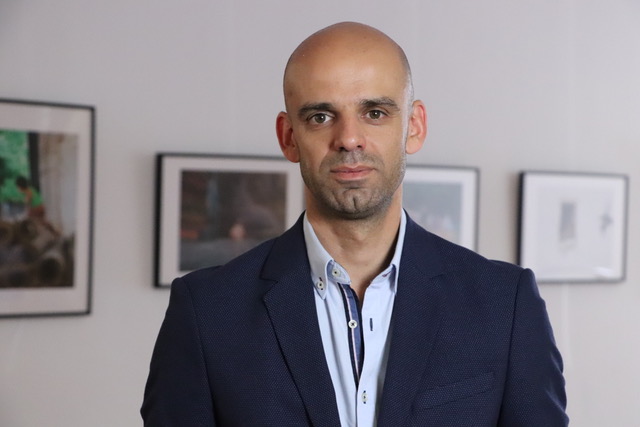
(Portugal)
Pedro Barquinha received his PhD in Nanotechnologies and Nanosciences from Universidade Nova de Lisboa in 2010. He is currently an Associate Professor at the Materials Science Department of FCT-NOVA and coordinator of the Doctoral program in Nanotechnologies and Nanosciences of the same university. He has been working in oxide electronics since 2004, participating in >30 national and international research projects in the area, with academia and industry. His work involves design, deposition and characterization of multicomponent oxide thin films, fabrication and characterization of transistors and their integration in circuits on flexible substrates. He is co-author of more than 150 peer-reviewed papers (h-index=44, as September 2020), 3 books and 3 book chapters in this area and gave >50 invited lectures in international scientific conferences and workshops. He also co-authored 4 international patents in the areas of multicomponent oxide dielectrics, p-type oxide semiconductors, paper electronics and x-ray sensing oxide TFTs. In 2016, he got an ERC Starting Grant (TREND) to take oxide electronics towards nanoscale, pursuing low temperature synthesis routes of oxide nanostructures and nanodevice/nanocircuit integration, complemented by device modelling/simulation, targeting multifunctional and self-powered smart surfaces. Within TREND, his team has been establishing processes for the growth of sustainable multicomponent oxide semiconductor nanostructures and giving the first steps into using nanoimprint lithography for oxide electronics.
Annalisa Bonfiglio - Molecular and Organic Devices, Sensors and Actuators, Thin-Film Transistors
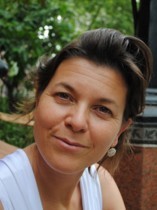
(Italy)
Annalisa Bonfiglio is Full Professor of Electronic Bioengineering at the University of Cagliari, Italy. She holds a Laurea degree in Physics from the University of Genova, Italy (1991) and a PhD from the Politecnico di Milan, Italy (1996). Since 1996 she is with the Department of Electrical and Electronic Engineering of University of Cagliari, first pursuing research on the reliability of optoelectronic devices (mainly lasers made of III-V materials) then, since 2000, focusing on organic electronics, gradually moving towards organic biosensors and their biomedical applications. In 2008 she was Visiting Scientist at Cornell University and, in 2009 and 2010, Visiting Professor at the Ecole Superieure des Mines/Telecom in Gardanne (France). Over the years, Prof. Bonfiglio has carried out research on organic transistors and transistor- based biosensors. Her current research interests focus on the physics, technology, and biomedical applications of organic devices, with a special attention to organic/cells biointerfaces, biochemical and biophysical sensors, and wearable devices based on organic semiconductors. She is author of more than 150 papers in International peer-reviewed journals, Conference proceedings, book chapters, books (as editor) and 12 patents. She also participated as Principal Investigator in several international (EU and extra-EU), national and regional research projects. Prof. Bonfiglio teaches undergraduate and graduate-level courses in electronics, electron devices and circuits, advanced semiconductor device physics, and bioelectronics. From 2012 to 2015 she was the Coordinator of the Course of Biomedical Engineering at University of Cagliari. Among other professional activities, from 2015 to 2017 Prof. Bonfiglio was ViceRector for Innovation and Territorial Strategies at the University of Cagliari and from 2017 to 2020 President of the Centre for Research, Development, Superior Studies in Sardinia (CRS4). She is in the Top Italian Scientist list and in the “100esperte” list (a list of top Italian female scientists). She has been recently appointed by the Italian Ministry of Research in the Committee for the National Research Plan (PNR) as an expert in “Digital Transition – Industry 4.0”.
Srabanti Chowdhury - Compound Semiconductor Devices
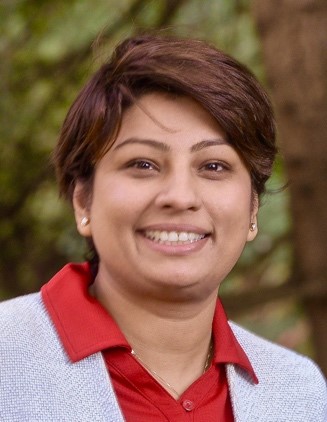
Udayan Ganguly - Memory Devices and Technology; Silicon and Column IV Semiconductor Devices; Emerging Technologies and Devices
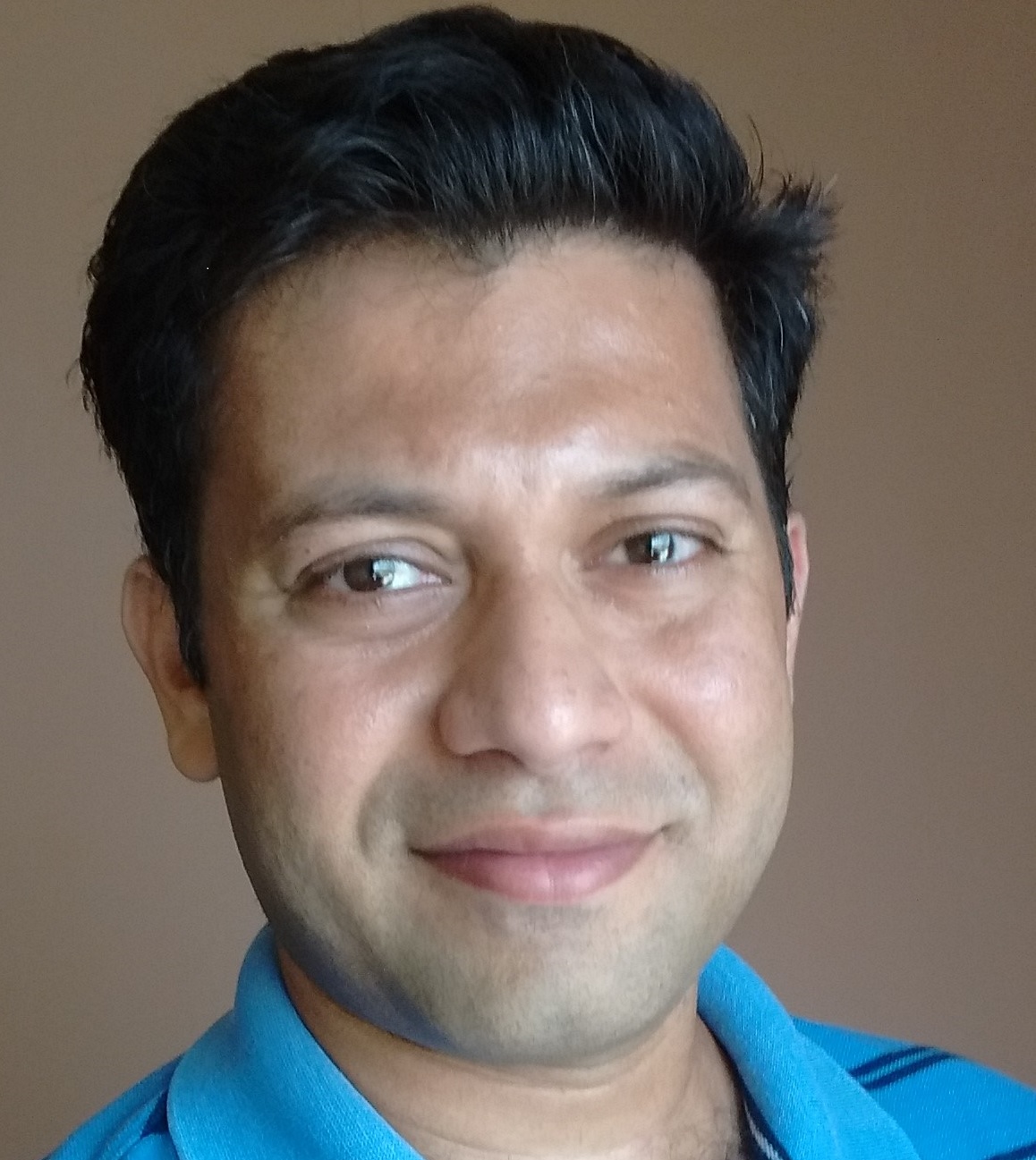
(India)
Udayan Ganguly received the B.Tech. degree in Metallurgical Engineering from the Indian Institute of Technology (IIT) Madras, in 2000 and the M.S. and Ph.D. degrees in Materials Science and Engineering from Cornell University, Ithaca, NY, in 2005 and 2006, respectively. In 2006, Udayan joined Applied Materials as technical lead for Flash Memory Applications Development at Applied Materials’ Front End Product Division, Sunnyvale, CA. He then joined Dept. of Electrical Engineering at IIT Bombay in 2010. He has authored/ co-authored 50+ journal, 90+ conference papers and 25+ patents (applied/granted). His research interests are in semiconductor device physics and processing technologies for advanced memory, computing, and neuromorphic systems. He likes to experiment with teaching/learning methods like “Think-Pair-Share”. He has contributed to the TIFAC National Vision for ICT 2035for India. He works to augment national semiconductor manufacturing capability at Semi-Conductor Labs, Chandigarh, for which he has won the Dr. PK Patwardhan Technology Development Award 2018.
Xiao Gong - Compound Semiconductor Devices, Optoelectronics, Display, Imaging
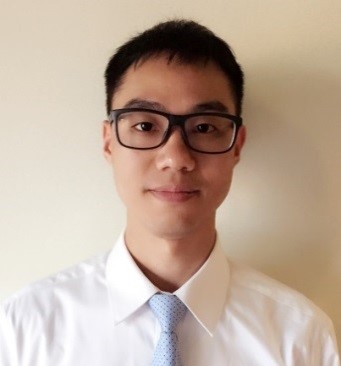
Harald Gossner - Solid-State Power and High Voltage Devices

(Germany)
Harald Gossner (M ‘07, SM ‘11) is Senior Principal Engineer at Intel. He received his degree in physics (Dipl. Phys.) from the Ludwig-Maximilians-University, Munich in 1990 and his Ph. D. in electrical engineering from the Universität der Bundeswehr, Munich in 1995. For 15 years he worked on the development of ESD protection concepts with Siemens and Infineon Technologies, heading the ESD development team of Infineon Technologies. In 2010 he has joined Intel overseeing the development of robust mobile systems.
Harald Gossner has authored and co-authored more than 130 technical papers and two books in the field of ESD and device physics. He holds 60 patents on the same topic. He received several best paper awards of EOSESD Symposium and has been the recipient of the 2015 Outstanding Contribution Award of ESD association. He is lecturer of tutorials at ESREF, IRPS and EOSESD symposium and has served in technical program committees of IEDM, EOSESD Symposium and International ESD Workshop. In 2006 he became cofounder and co-chair of the Industry Council on ESD Target Levels. Since 2012 he is also member of the board of directors of ESD Association and currently holds the position of a vice president of the organization.
Bogdan Govoreanu - Memory Devices and Technology
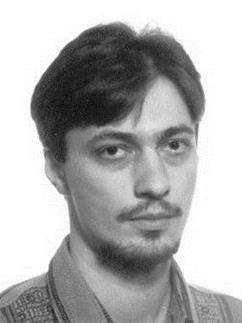
(Belgium)
Bogdan Govoreanu (SM’11, M’04) received his Dipl.-Eng. and M.Sc. degrees in Electronics from the Polytechnic University of Bucharest, Romania, in 1995 and 1996, respectively and his Ph.D. degree in Applied Sciences from the University of Leuven (KU Leuven), Belgium, in 2004, for his research work on tunnel barrier engineering for nonvolatile memory. He joined imec Leuven in 2004, where he is presently a Principal Scientist. His research focus is on advanced and emerging memory devices, materials and technologies. His recent research interests extend to various neuromorphic computing areas, including components, machine learning algorithms and systems. Dr. Govoreanu has authored or co-authored over 130 papers in peer-reviewed journals and conference proceedings and holds over 10 US and European patents. He has served in the IEDM Technical Program Committee (2012-2013) and, since 2014, in the ESSDERC Technical Program Committee.
Genquan Han - Silicon and Column IV Semiconductor Devices, Emerging Technologies and Devices
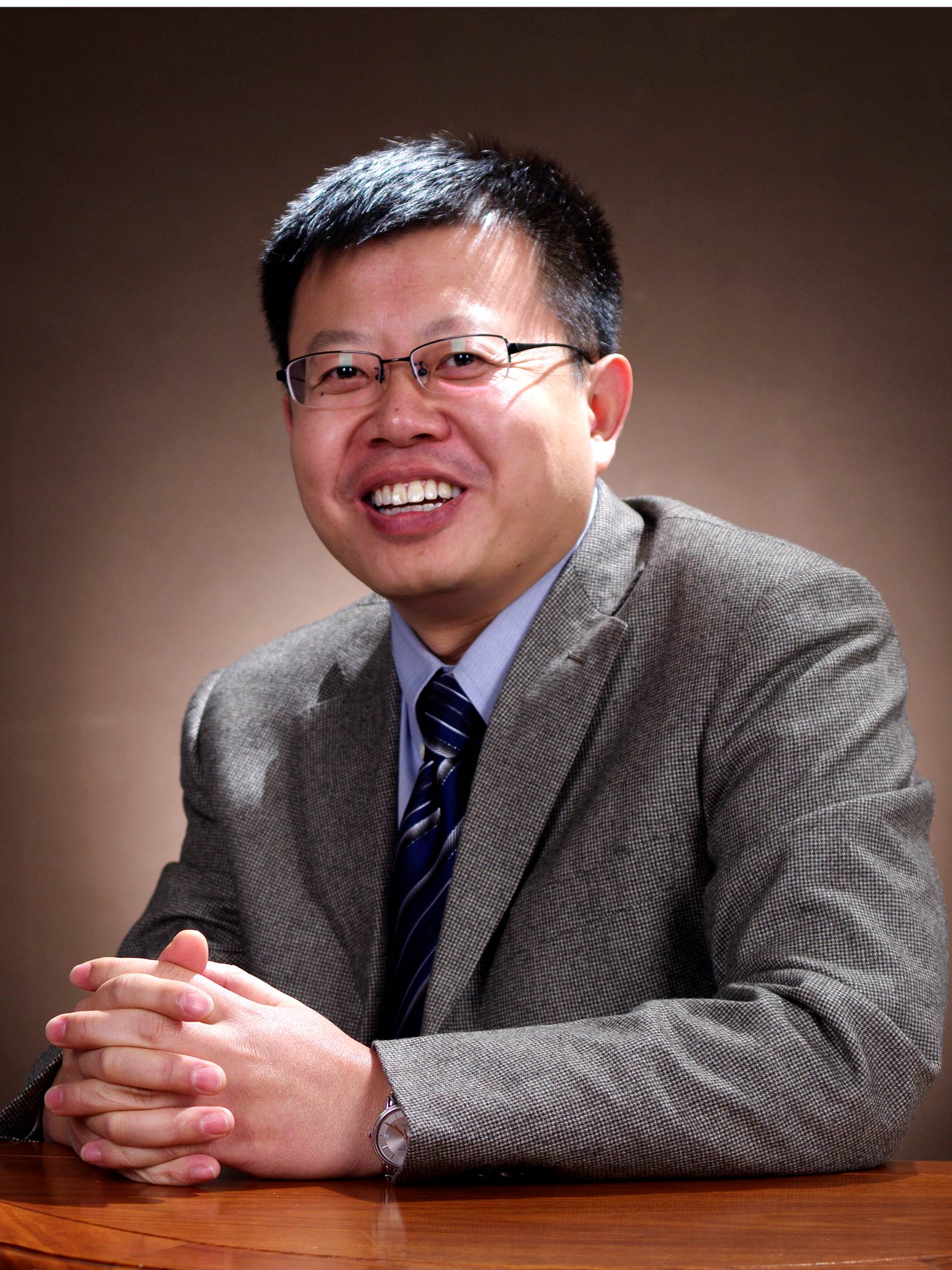
Genquan Han received B.S. degree in material science and engineering from Tsinghua University, Beijing, in 2003, and Ph.D. degree in microelectronic and solid-State electronics from Institute of Semiconductors, Chinese Academy of Sciences in 2008. From 2008 to 2013, he was a Research Fellow with Silicon Nano Device Laboratory (SNDL), National University of Singapore. His research focused on design and fabrication of tunneling transistors and high mobility channel MOSFETs. In 2013, he joined the college of optoelectronic engineering, Chongqing University. Since May 2015, he joined the school of microelectronics, Xidian University, as a Professor. His current research interests include high mobility channel transistors, steep slope devices, such as negative capacitance FETs, Ga2O3 wide bandgap devices, and group-IV photonics.
Digh Hisamoto - Emerging Technologies and Devices
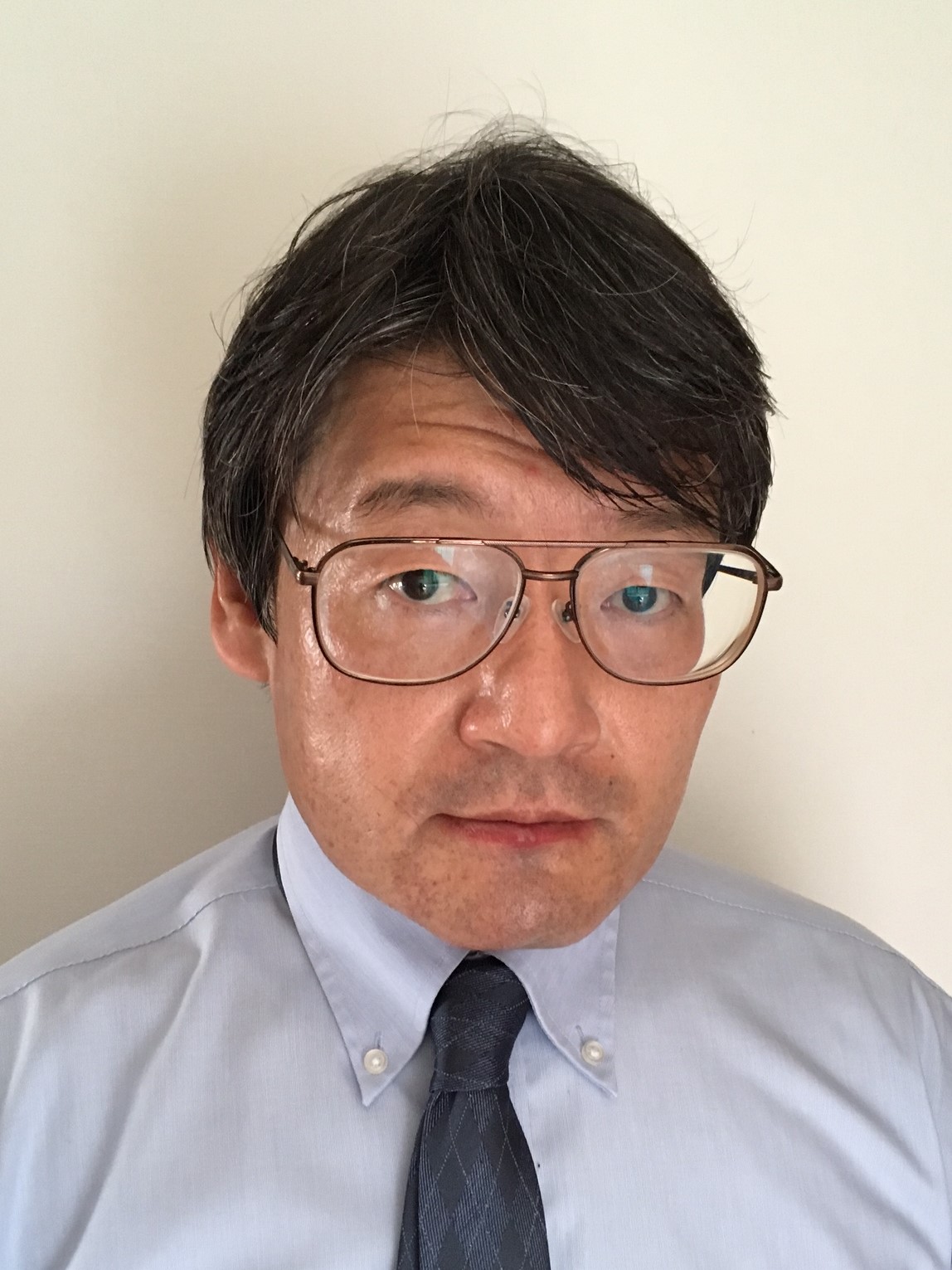
Digh Hisamoto received the B.S., M.S. and Ph.D. degree from the University of Tokyo in 1984, 1986, and 2003, respectively.
In 1986, he joined Central Research Laboratory, Hitachi, Ltd., Tokyo, where he has been working on ULSI device physics and process technologies. He developed scaled CMOS and memory devices including DELTA, the original model of FinFET. From 1997 to 1998, he was a Visiting Industrial Fellow at University of California, Berkeley, where he fabricated the first FinFET. For the achievements, he received IEEE Andrew S. Grove Award in 2019. He has expanded his research interests into RF devices, tunnel FETs, Non-volatile memory devices, and Power devices using wide bandgap semiconductors.
From 2015 to 2019, he was invited as a visiting professor at Tokyo Institute of Technology, where he started the research of quantum devices including quantum sensors with color centers of wide bandgap materials and Si quantum computing devices.
He served as a member of the Program Committee and Executive Committee of the international conferences on electronic devices (IEDM, VLSI Symposium, SSDM). He also served as Director and Executive Director of Japan Society of Applied Physics (JSAP).
Dr. Hisamoto is Fellow of IEEE and JSAP.
Ray-Hua Horng - Optoelectronics, Displays, Imaging, Compound Semiconductor Devices, Sensors and Actuators
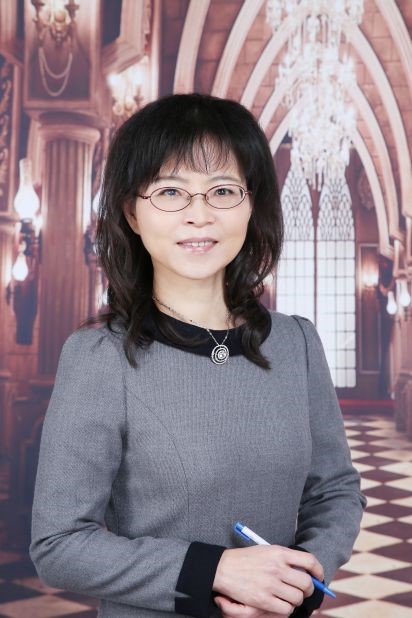
Ray-Hua Horng received the B.S. degree in electrical engineering from National Cheng Kung University, Tainan, Taiwan, in 1987, and the Ph.D. degree in electrical engineering from National Sun Yat Sen University, Kaohsiung, Taiwan, in 1993.
Prof. Horng is a scientist active in the field of green photonics devices. She has introduced outstanding innovations to the process of fabrication of high-performance LEDs and solar cells based on III-V quaternary semiconductors materials, III-V nitrides, and wide-bandgap oxide materials covering all aspects of development, from material growth and characterization to device design and fabrication, up to the stage of patent coverage and technology transfer. Prof. Horng has a very strong relationship with industry with extensive experience in technology transfer.
Prof. Horng has a remarkable record of publications: over 330 papers on SCI Journals and 500 papers in Conference Proceedings, with an h index of 32 and 3969 citations of her published papers, and a rich portfolio of patents, about 155 (25 US and 130 domestic) of which 40 have been licensed to companies.
Dr. Horng received numerous awards recognizing her work on high-brightness LEDs. She has awards from the Ministry of Education of Taiwan for Industry/ University Corporation Project in 200 and from the Ministry of Science & Technology of Taiwan for excellent technology transfer of high-power LEDs in 2006, 2008, 2009, 2010 and 2011. In 2008, Chi Mei Optoelectronics honored her with the first prize Chi Mei Award. In 2007, she received the IEEE Region 10 Academia-Industry Partnership Award and in 2013, she was selected for the distinguished research award by the National Science Council of Taiwan. She became Fellow of the Australian Institute of Energy in 2012, Fellow of the Institution of Engineering and Technology in 2013, Fellow of SPIE in 2014, Fellow of IEEE in 2015 and Fellow of OSA in 2016.
Prof. Horng has devoted special attention to device technology as well as to issues of interfacing with system applications, thus achieving a number of contributions ranging from materials to processes, to thermal design and contact issues, to optics, and to packaging. The research activities of Prof. Horng have focused on material growth by MOCVD of III-V quaternary semiconductors, III-V nitride compounds, wide bandgap oxide materials and device fabrication of LEDs and semiconductor devices (containing HEMTs, deep-UV photodiodes, deep-UV phototransistor and gas sensors), and nano-technology fabrication processes for LEDs and high-efficiency solar cells. A special achievement of Prof. Horng has been smart-cut technology and epilayer transfer for LEDs and solar cells, with re-use of the substrate. This technology has been developed in her laboratory and is described in several widely cited Journal papers, as well as covered by international patents. Many patents have been transferred to manufacturing Companies in Taiwan, boosting them to the top international market positions.
Guohan Hu - Emerging technologies and devices
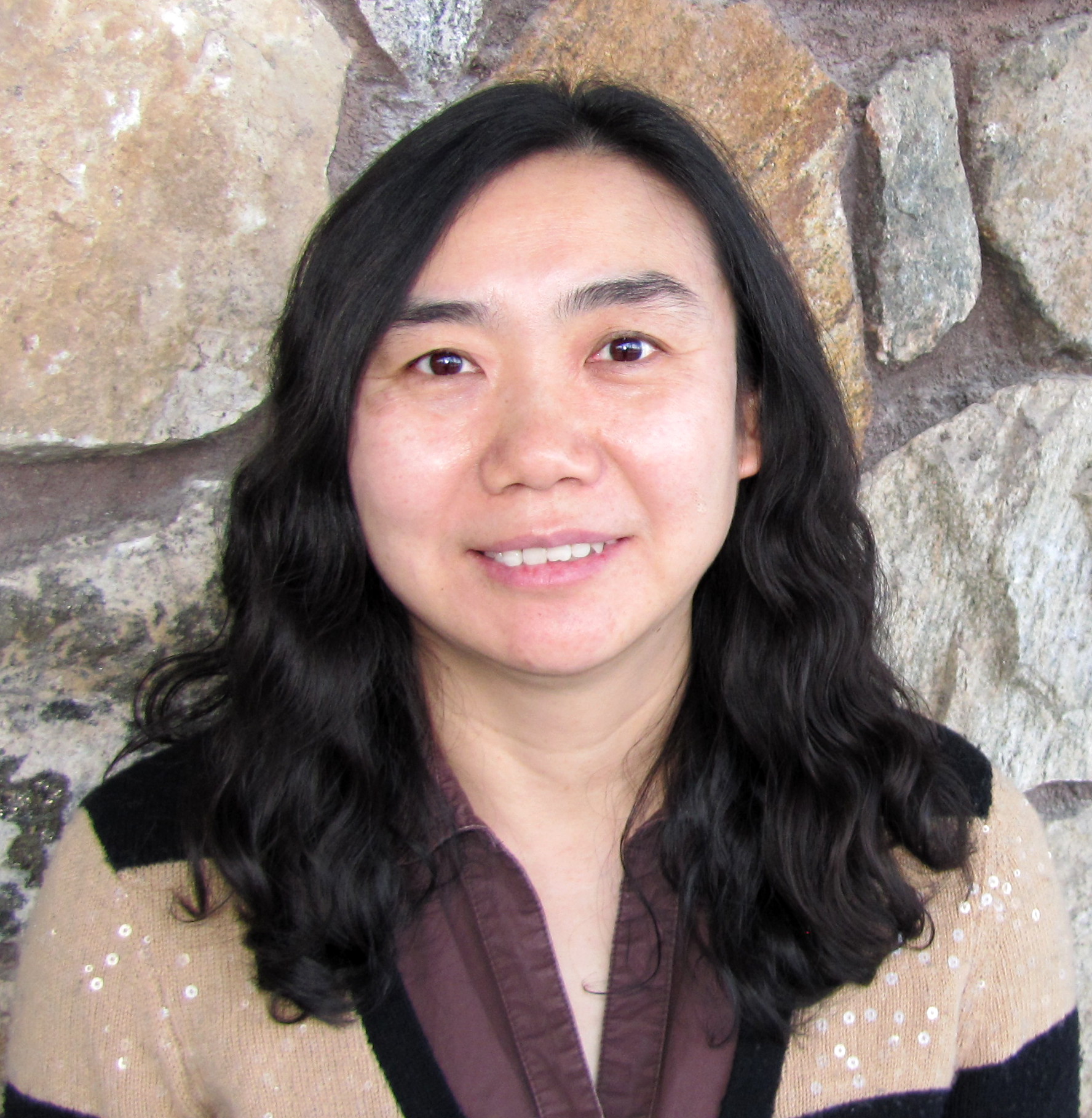
Guohan Hu is a Distinguished Research Staff Member and Manager of the MRAM Materials and Devices group at the IBM T. J. Watson Research Center. Guohan received her Ph.D. degree in Materials Science and Engineering from Cornell University in 2002. Guohan’s research interests are on spintronic materials and devices, magnetic oxides and magnetic recording media. Guohan is an IEEE fellow and served on the editorial board of Journal of Magnetism and Magnetic Materials from 2017 to 2019.
Ahmad E Islam - Compound semiconductor Devices, Solid State Power and High Voltage Devices
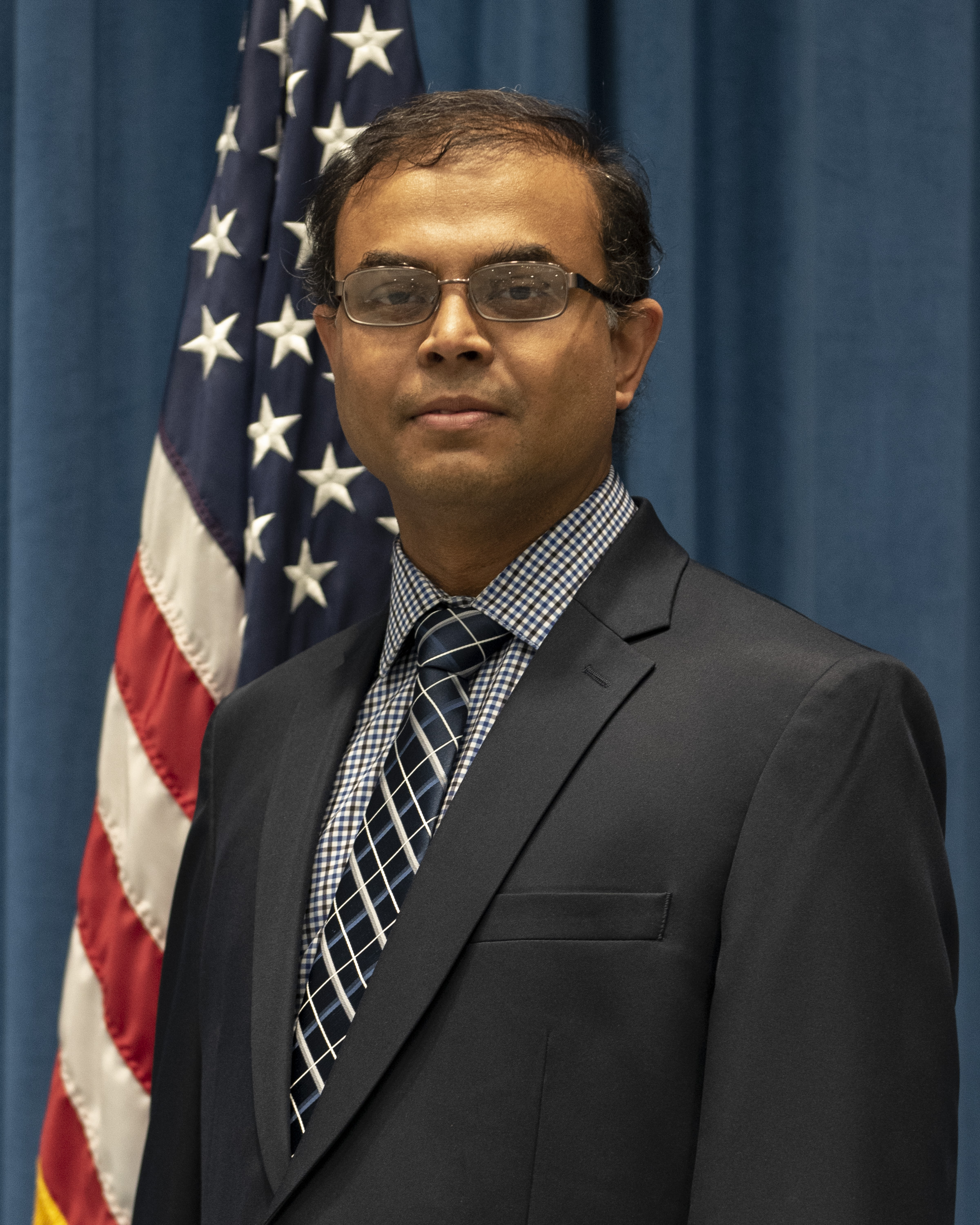
Sensors Directorate, USA
Dr. Ahmad Ehteshamul Islam is a Senior Electronics Engineer at the Air Force Research Laboratory (AFRL) - Sensors Directorate (RY). He serves as a Research Team Lead at the Devices for Sensing Branch (RYDD) developing microwave devices and amplifiers using III-N materials and high frequency power converters using Ga2O3. He is interested in the performance improvement and reliability of microelectronic devices by utilizing materials innovation, defect engineering, microfabrication, and novel device design.
Dr. Islam obtained bachelor’s in electrical engineering (EE) from Bangladesh University of Engineering and Technology (BUET) in 2004, and a Ph.D. in EE from Purdue University in 2010. His Ph.D. research was on the theory and characterization of Bias Temperature Instability; the resultant model is now widely adopted in the CMOS industry and has recently been included into a TCAD model developed by Synopsys. He has published journals and conference proceedings on dielectric integration, defect engineering, nanomaterials, flexible biosensors, and high-frequency, high-power and high temperature electronics. He is a Senior Member of IEEE and a member of IEEE EDS Education Activities Committee. He was the recipient of IEEE Dayton Section Harrell V. Noble award (2024), DoD Laboratory Scientist of the Quarter award for (Q4/2023), National Research Council (NRC) postdoctoral fellowship (2012, 2014), Intel foundation PhD fellowship (2009), IEEE EDS PhD fellowship (2008), and Kintar-Ul-Haque Gold Medal (2005).
Dr. Islam joined the United States Air Force in 2020 as a civil servant. Previously, he worked with AFRL/RYDT as a Research Engineer/Technical Advisor of KBR, Inc. (2019-2020), and with AFRL/RXAS as a Research Scientist of UES, Inc. (2012-2014, 2016-2019) and a NRC Postdoctoral Fellow (2014-2016). He also worked as Adjunct Faculty in EE at the University of Dayton (2019-2020), as a Postdoctoral Researcher with Prof. John Rogers at the University of Illinois (2010-2012) and as a Lecturer of EE Department at BUET (2004-2005).
Gregg Jessen - Compound Semiconductor Devices, Emerging Technologies and Devices
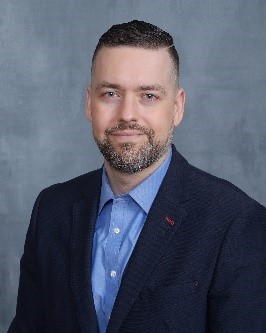
Gregg Jessen (SM’12) received the B.S. degree in engineering physics from Wright State University, Dayton, OH, USA, in 1997, and the M.S. and Ph.D. degrees in electrical engineering from The Ohio State University, Columbus, OH, USA, in 1998 and 2002, respectively. He is currently a Distinguished Fellow leading advanced corporate technology development at MACOM. From 2019 - 2021, he led custom compound semiconductor MMIC solution development as the Director of the Microelectronics Center Foundry and a Chief Scientist at BAE Systems, Inc. Prior to this, Dr. Jessen was a Fellow of the Air Force Research Laboratory in the Sensors Directorate. In these roles, he developed numerous material and transistor technologies in wide bandgap and ultra-widebandgap materials for RF subsystems, component applications, and harsh environment operation. Dr. Jessen’s efforts have spanned basic research, program management, and application development and have resulted in several technology transfers from basic research efforts to industry. For his technical efforts, he has been awarded the IEEE Harrell V. Noble Award in 2018, the AFRL Sensors Directorate Director’s Cup in 2013 and 2017, and the AFRL Brian Hendrickson Award for technical excellence in 2015 and 2017. For his programmatic efforts, he received the Exemplary Civilian Service Award in 2011. He has authored or co-authored > 100 journal articles and conference proceedings.
Jungwoo Joh - Compound Semiconductor Devices
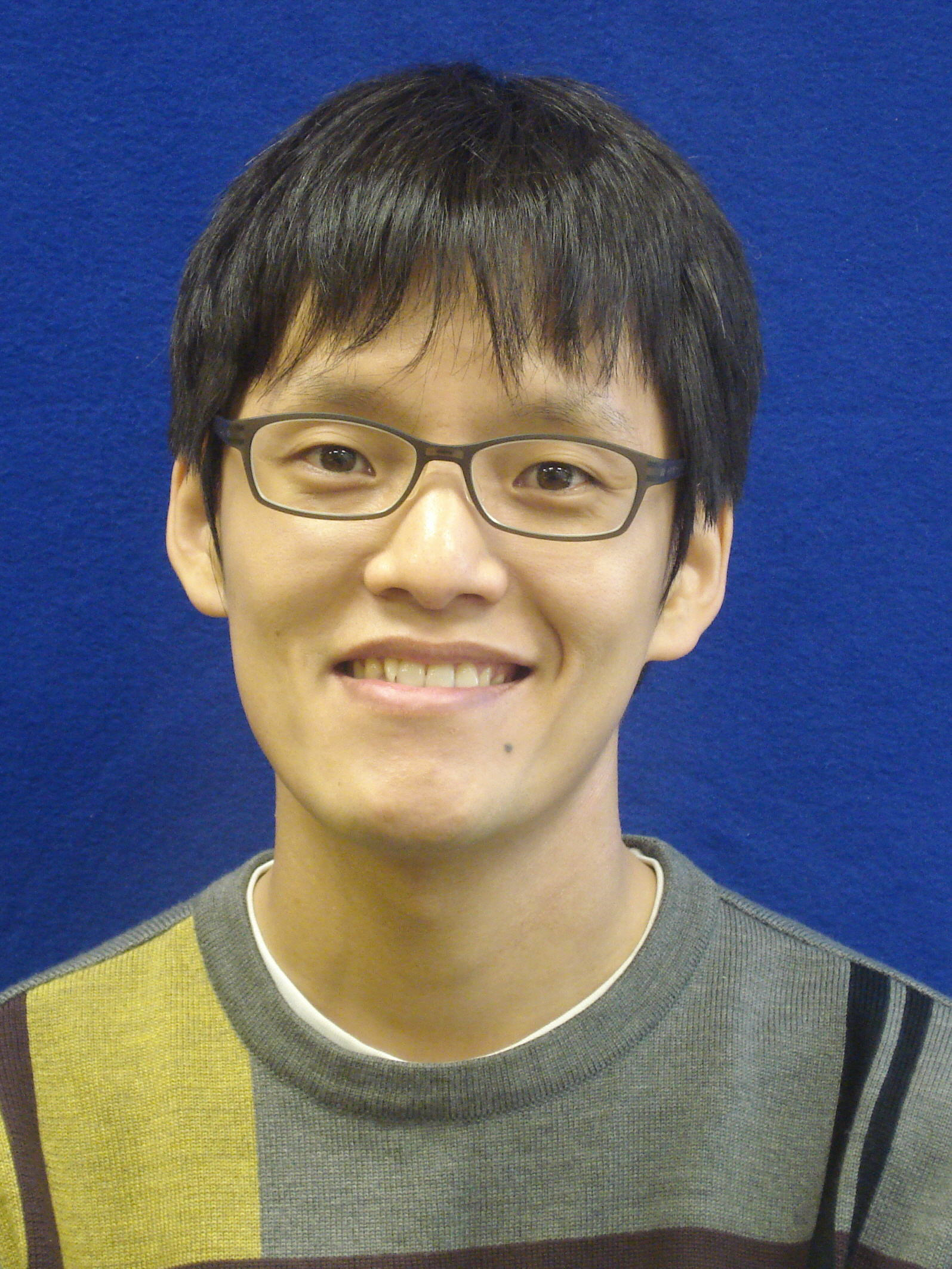
Jungwoo Joh received the B.S. degree in electrical engineering from Seoul National University in 2002, and the S.M. and Ph.D. degrees in electrical engineering from Massachusetts Institute of Technology in 2007 and 2009, respectively. He is currently a Process Development Engineering Manager at Texas Instruments, leading GaN process technology development for power applications. Through his career, Dr. Joh conducted research on reliability physics of GaN based RF and power transistors, focusing on trapping dynamics, time and voltage dependent breakdown mechanisms as well as developing device characterization methodologies. He has also worked on process development and reliability of various Si based power device technologies. He has served as conference committee of IEEE International Electron Devices Meeting and International Reliability Physics Symposium.
Asif I. Khan - Memory Devices and Technologies
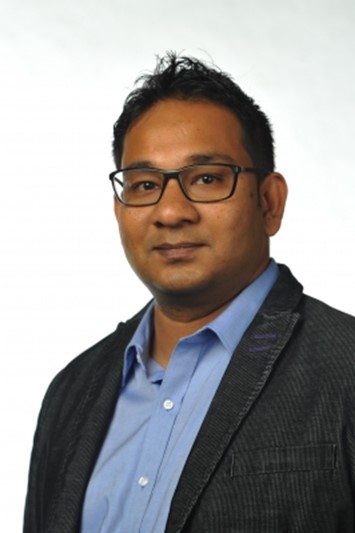
School of Electrical and Computer Engineering, USA
Asif Khan is an Assistant Professor and onsemi Junior Professor in the School of Electrical and Computer Engineering at Georgia Institute of Technology, with a courtesy appointment in the School of Materials Science and Engineering. Dr. Khan's research is focused on ferroelectric devices that address the challenges arising from the end of transistor miniaturization in semiconductor technologies. His work has resulted in the first experimental proof-of-concept demonstration of ferroelectric negative capacitance, which has the potential to reduce power dissipation in transistors. Recently, Dr. Khan has been working on the design, fabrication, reliability, and metrology of ferroelectric field-effect transistors. Dr. Khan has received several notable awards for his contributions, including the DARPA Young Faculty Award (2021), the NSF CAREER award (2021), the Intel Rising Star award (2020), the Qualcomm Innovation Fellowship (2012), TSMC Outstanding Student Research Award (2011), and the University Gold Medal from Bangladesh University of Engineering and Technology (2011). In Fall 2020, Dr. Khan was recognized with the Class of 1934 CIOS Honor Roll award for excellence in teaching a graduate course on Quantum Computing Devices and Hardware.
Masaharu Kobayashi - Memory Devices and Technology, Thin Film Transistors
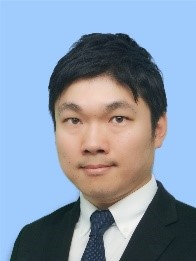
Institute of Industrial Science (IIS), Japan
Masaharu Kobayashi, Ph.D. has been an associate professor at The University of Tokyo since 2014. His current research interest is emerging nanoelectronic device for energy-efficient computing in IoT and AI applications.
Prior to joining The University of Tokyo, Prof. Kobayashi was a Research Staff Member in IBM Watson Research Center. he was involved in exploratory device research for beyond-10nm technology node. He also contributed to 14nm SOI CMOS technology development.
Prof. Kobayashi received a Ph.D degree in Electrical Engineering from Stanford University, Stanford, California, USA. He is a senior member of IEEE. He is serving for program committee of IEDM (2018-2020) and VLSI Symposium (2016-Now) and IRPS (2022-Now). He is a recipient of IEEE EDS Leo Esaki Award (2020) and IEEE EDS Paul Rappaport Award (2022).
Kelin J. Kuhn - Silicon and Column IV Semiconductor Devices; Emerging Technology and Devices
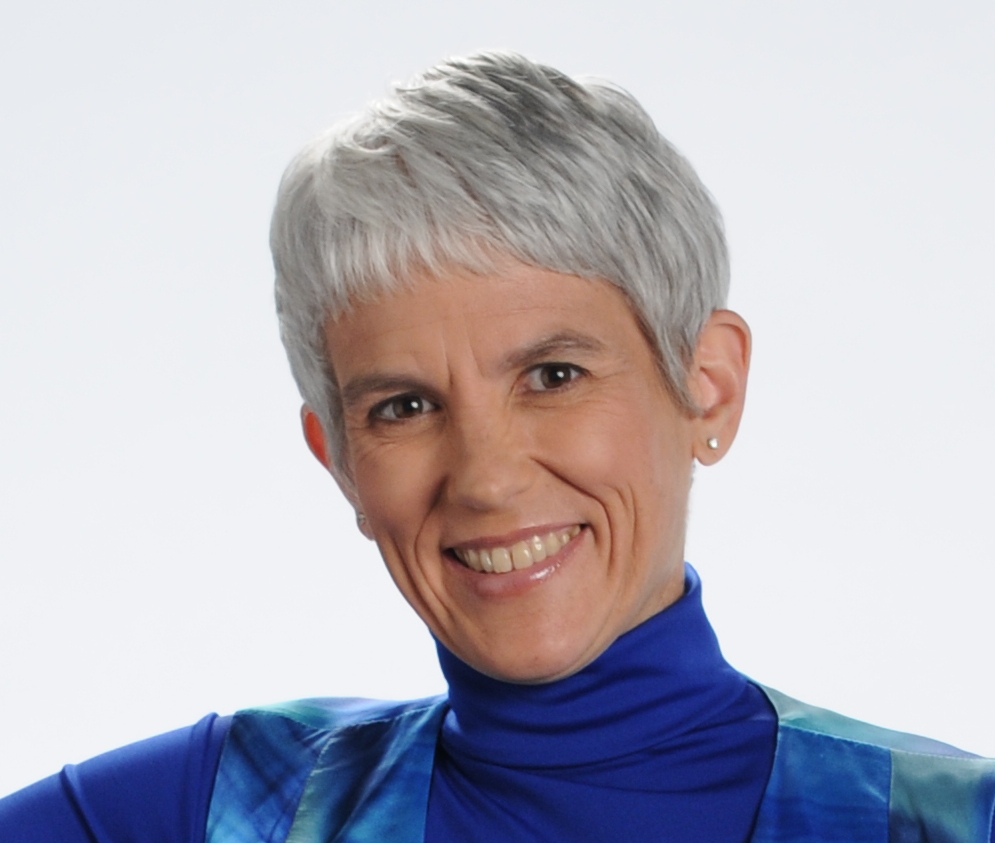
Kelin J. Kuhn (M’78–SM’04-F’11) received the B.S. degree in electrical engineering from the University of Washington, Seattle, in 1980 and the M.S. and Ph.D. degrees in electrical engineering from Stanford University, Palo Alto, CA, in 1985. Prior to 1997 she was a tenured Associate Professor with the Department of Electrical and Computer Engineering, University of Washington. In 1997, she joined Intel Corporation, Hillsboro, OR, working on the Intel 0.35-μm process technology and was involved in Intel manufacturing process technology development for the 0.35-μm, 130-nm, 90-nm, 45-nm, 22-nm, 14-nm, and 7nm technology nodes. She retired from Intel in 2014 with the title of Intel Fellow and Director of Advanced Device Technology in the Components Research Group of Intel Corporation. She is presently the Mary Shepard B. Upson Visiting Professor in the Department of Materials Science and Engineering at Cornell University. She is the author of more than 100 technical papers in electronics and photonics, as well as the author of the textbook Laser Engineering (Prentice-Hall, 1997) and an editor (in partnership with Prof. T.J.K. Liu) of the book CMOS and Beyond: Logic Switches for Terascale Integrated Circuits (Cambridge, 2015). Dr. Kuhn is an IEEE Fellow, recipient of the IEEE Frederik Philips Award (2016), the IEEE Paul Rappaport Award (2013), and two Intel Achievement Awards (Intel’s highest technical award) one 2006 (for HiK-MG) and one in 2008 (for key contributions to Intel’s 22nm TriGate technology). She is also a past recipient of the NSF Presidential Young Investigator award (1991-7).
Hyunjoo Jenny Lee - Sensors and Actuators
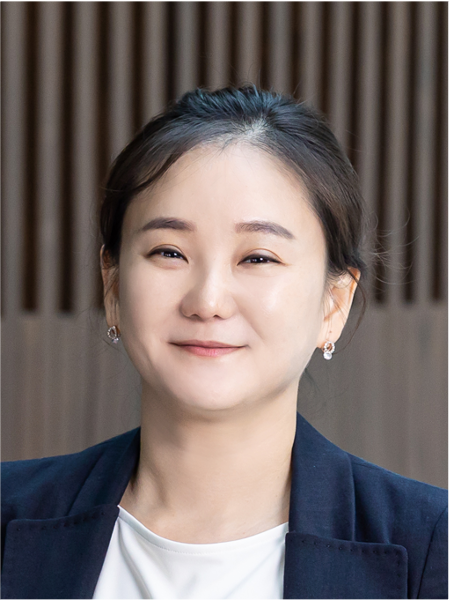
Hyunjoo Jenny Lee is an Associate Professor in the School of Electrical Engineering and the KAIST Endowed Chair Professor at the Korea Advanced Institute of Science and Technology (KAIST). She received the B.S. degree and M.Eng. degree in Electrical Engineering and Computer Science from the Massachusetts Institute of Technology (MIT), Cambridge, MA, in 2004 and 2005, respectively, and the Ph.D. degree in Electrical Engineering from Stanford University, Stanford, CA, in 2012. Her research focuses on MEMS sensors and actuators for biomedical applications including neural interfaces, ultrasound transducers, epidermal electronics, and biosensors. She is the author of over 50 journal and conference papers and is a recipient of a number of awards, including the Korean Government's Minister of Science and ICT's Award (2022), KAIST Technology Innovation Award (2021), and WEF Young Scientist Award (2017).
Zhenqiang (Jack) Ma - Compound Semiconductor Devices; Solid State Device Phenomena
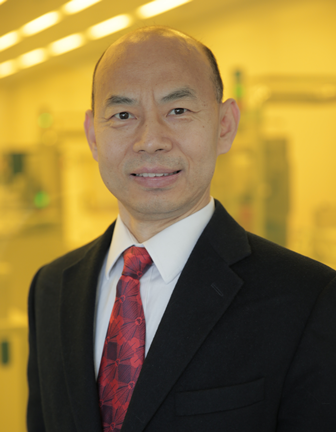
Zhenqiang (Jack) Ma received his B.S. degree in applied physics and B.E. degree in electrical engineering from Tsinghua University in Beijing, China in 1991. He received his M.S. degree in nuclear science and M.S.E. degree in electrical engineering from the University of Michigan, Ann Arbor in 1997, and the Ph.D. degree in electrical engineering from the University of Michigan, Ann Arbor in 2001. From 2001-2002, he was a member of the R&D team at Conexant Systems and later its spin-off, Jazz Semiconductor (now TowerJazz), in Newport Beach, CA. In 2002, he left Jazz to join the faculty of University of Wisconsin–Madison as an assistant professor in the Department of Electrical and Computer Engineering. He is now a Lynn H. Matthias Professor in Engineering and a Vilas Distinguished Achievement Professor with affiliated appointments in four other departments and research institutes in engineering and medical school. His current interdisciplinary research covers electrical engineering, materials science and engineering, and biomedical engineering. His present research focuses on the materials, physics and device applications of lattice-mismatched 3D-semiconductor heterostructures, microwave flexible electronics, semiconductor nanomembrane-based sensors, and bioelectronics. He is the author or co-author of about 500 technical papers and book chapters related to his research and holds several dozens of US, foreign and international patents. He is a fellow of AAAS, AIMBE, APS, IEEE, NAI and OSA.
B. Gunnar Malm - Emerging Technologies and Devices; Silicon and Column IV Semiconductor Devices

Bengt Gunnar Malm (M’98 - SM’10) was born in Stockholm, Sweden, in 1972. Since 2020 he is a Professor of Integrated Devices and Circuits at the School of Electrical Engineering and Computer Science (EECS), KTH, Sweden. He received the PhD degree in Solid-State Electronics in 2002 from KTH and the MSc degree in engineering physics from Uppsala University, Uppsala, Sweden, in 1997. His research interests include semiconductor and spintronic device physics, and device characterization with emphasis on noise, fluctuations and variability. His recent work includes noise and fluctuations in microwave spintronic devices, 3D sequential ingegration of Si/Ge CMOS, and silicon-carbide (SiC) integrated bipolar and CMOS circuits for extreme environments. He has been the main advisor for 3 PhD students and co-advisor for about 10 students and has published or co-authored more than 100 scientific papers in international journals and conferences. He has coauthored 3 book chapters, given a number of invited conference papers and one tutorial, and has one granted US patent. Dr. Malm is a member of the ESSDERC TPC and served as co-chair for 2011 event in Helsinki. He has an active interest in sustainability issues and served on the KTH Sustainability Council. He is currently serving as chairman of the faculty assembly at the school of EECS, KTH.
Veena Misra - Sensors and Actuators

Dept. of Electrical Engineering, NC USA
Veena Misra is the Director of the National Science Foundation Nanosystems Engineering Research Center on Advanced Self-Powered of Integrated Sensors and Technologies (ASSIST). She is a Distinguished Professor of Electrical and Computer Engineering at North Carolina
State University and a 2012 IEEE Fellow. She is also a distinguished lecturer for IEEE Sensors. She received the B.S., M.S., and Ph.D. degrees in electrical engineering from North Carolina State University, Raleigh. After working at the Advanced Products Research and Development Laboratories, Motorola Inc., Austin, TX she joined the faculty of North Carolina State University in 1998. She has authored or coauthored over 200 papers. Dr. Misra was the recipient of the 2001 National Science Foundation Presidential Early CAREER Award, the 2011 Alcoa Distinguished Engineering Research Award, and 2007 Outstanding Alumni Research Award and the 2016 R.J. Reynolds Award. She also served as the general chair of the 2012 IEEE International Electron Device Meeting.
Victor Moroz - Silicon and Column IV Semiconductor Devices; Solid-State Device Phenomena

Victor Moroz received M.S. degree in Electrical Engineering from Novosibirsk Technical University and Ph.D. degree in Applied Physics from the University of Nizhny Novgorod. After engaging in technology development at several semiconductor manufacturing companies and teaching at the University of Nizhny Novgorod, Dr. Moroz joined Technology Modeling Associates in 1995, which later became a part of Synopsys. Currently Dr. Moroz is a Synopsys Fellow, engaged in a variety of projects on modeling FinFETs, gate-all-around nano-wires, stress engineering, 3D ICs, transistor scaling, Middle-Of-Line and Back-End-Of-Line RC, solar cell design, innovative patterning, random and systematic variability, junction leakage, non-Si transistors, and atomistic effects in layer growth and doping. Several facets of this activity are reflected in three book chapters and over 100 technical papers, invited presentations, and patents. He has been involved in technical committees at ITRS, IEDM, SISPAD, DFM&Y, ECS, IRPS, and ESSDERC.
Iulian Nistor - Solid-State Power and High Voltage Devices, Sensors and Actuators
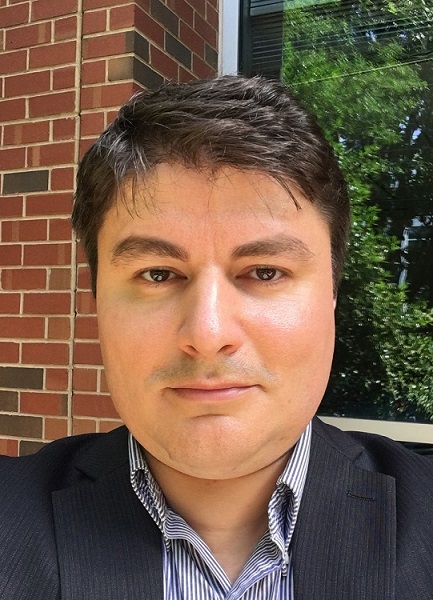
Iulian Nistor (Senior Member, IEEE) received the B.S. degree in Physics from “Alexandru-Ioan Cuza” University, Iasi, Romania in 2002, and the Ph.D. degree in Electrical Engineering from University of Maryland, College Park in 2006. Dr. Nistor has accumulated 15 years of industrial experience in the field of solid-state devices and power electronics, with more than 27 patents issued or pending, and co-authored over 30 journal and conference papers. He established and strengthened key research partnerships with numerous industrial and academic organizations in the US, Switzerland, UK, and Europe. His technical experience covers a wide range of device design concepts and processing technologies including Silicon and Wide Bandgap based semiconductors.
He joined ABB’s Corporate Research Centre in Switzerland in 2007, where he researched, in cooperation with ABB Switzerland Ltd. Semiconductors, advanced power semiconductors such as the world’s first 10kV Integrated Gate Commutated Thyristors (IGCT) and diodes for MV drives and marine applications, thin-wafer IGBT technology, Super-junction IGBT concepts, and SiC MOSFETs.
Between 2014 and 2018 he served as Head of R&D Department in the ABB’s Corporate Research Centre in North America (now Hitachi Energy), where he oversaw key technical developments in Wide-bandgap semiconductors and related power electronic applications. Subsequently, he joined Infineon AG, Germany as a power semiconductor regional marketing manager and global application manager, and in 2019 he cofounded mqSemi AG (a fabless power semiconductor startup). His current focus is on developing new generations of Silicon and Silicon Carbide power semiconductors that use innovations in technology platforms and novel fabrication approaches integrated in qualified industrial-scale production fabs.
Min Hyuk Park - Emerging Technologies and Devices:
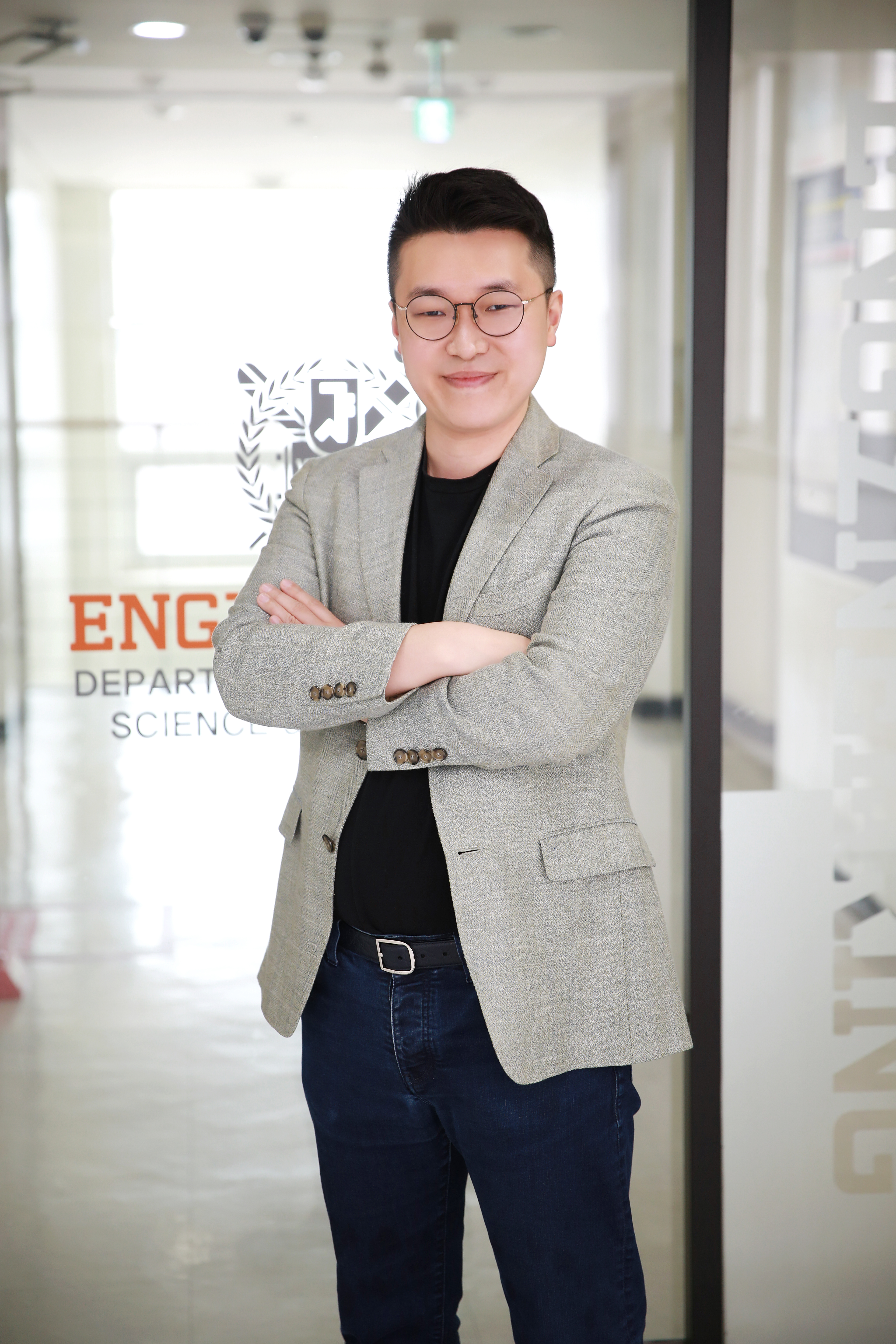
Prof. Min Hyuk Park is an assistant professor at the department of materials science and engineering in Seoul National University. Before joining Seoul National University, he worked as a postdoc in NaMLab gGmbH in Dresden, Germany from 2015 to 2018, and then worked as an assistant professor at the department of materials science and engineering in Pusan National University. He got his BS and PhD degrees in the department of materials science and engineering in Seoul National University in 2008 and 2014. He is an expert of materials and devices based on ferroelectric materials, and especially has intensively contributed to the field HfO2-based ferroelectrics. He coauthored more than 90 papers on ferroelectric materials and devices in peer-reviewed journals. According to google scholar, his publications have been cited >6,500 times and his h-index is 44, demonstrating his academic impact in the field of ferroelectrics. With his impactful contribution to the field of ferroelectrics he was selected as a POSCO Science Fellow 2020.
Mina Rais-Zadeh - Compound Semiconductor Devices
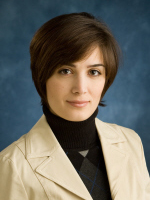
Research Areas: Electron devices for wireless communication and sensing applications and the related device physics, Resonant Sensors: e.g. uncooled infrared detectors, Gallium nitride MEMS and microsystems
Professional Memberships: IEEE EDS
Biography: Mina Rais-Zadeh received the B.S. degree in electrical engineering from Sharif University of Technology and M.S. and Ph.D. degrees both in Electrical and Computer Engineering from Georgia Institute of Technology in 2005 and 2008, respectively. From August 2008 to 2009, she was a Postdoctoral Research Fellow at Georgia Institute of Technology. Since January 2009, she has been with the University of Michigan, Ann Arbor, where she is currently an Associate Professor in the Department of Electrical Engineering and Computer Science.
Dr. Rais-Zadeh is the recipient of the NSF CAREER Award (2011), IEEE Electron Device Society Early Career Award (2011), NASA Early Career Faculty Award (2012), the Crosby Research Award from the University of Michigan (2013), National Academy of Engineering Frontiers of Engineering (2013), and ONR Young Investigator Award (2014). Together with her students, she received the best poster award at the Transducers conference (2013), the best paper award at the IEEE SiRF conference (2014), honorable mention at the IEEE IMS (2014), and was the finalist in student paper competitions at the SiRF (2007) and IMS (2011) conferences. She was the chairperson of the Display, Sensors and MEMS (DSM) sub-committee at the 2013 IEEE International Electron Devices Meeting (IEDM) and is a member of the 2014 IEDM Executive Committee and 2015 IEEE MEMS Executive Committee. She is a senior member of IEEE and has served as a member of the technical program committee of IEEE IEDM (2011-2013), IEEE Sensors Conference (2011-2014), the Hilton Head workshop (2012, 2014), the IEEE MEMS Conference (2014-2015), Transducers (2015), and IFCS (2015). She is an associate editor of the IEEE Electron Device Letters. Her research interests include electron devices for wireless communication and sensing applications and the related device physics, resonant micromechanical devices, RF MEMS, gallium nitride MEMS, and micro/nano fabrication process development.
Lecture Topics:
- Electron devices for communication and sensing in Space and/or harsh environments and the related device physics
- Resonant Sensors: e.g. uncooled infrared detectors, Gallium nitride MEMS and Microsystems
- Phase change RF to optical micro-devices
Nikita M. Ryskin - Vacuum Electron Devices
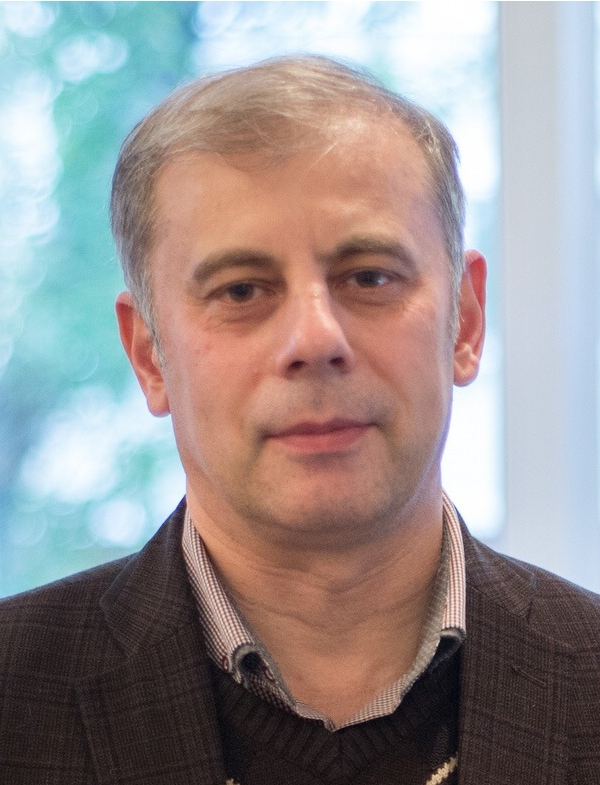
(Russia)
Nikita M. Ryskin (M’03–SM’10) received the Diploma, Ph.D., and D.Sc. degrees from Saratov State University, Saratov, Russia, in 1991, 1996, and 2005, respectively. Since 1991, he has been with Saratov State University, where he is currently a Professor and Chair of the Department of Dynamical Systems. In 2013, he also joined Saratov Branch of Kotelnikov Institute of Radio Engineering and Electronics RAS, where he is currently a Head of the Vacuum Micro- and Nanoelectronics Laboratory. Prof. Ryskin conducted research on time-domain simulation of nonlinear and chaotic phenomena in various vacuum microwave electron devices (BWO, TWT, klystrons etc.). His current research interests include development of miniaturized sub-THz and THz vacuum tubes as well as theoretical study of nonlinear phenomena in gyrotron and other microwave oscillators. Не has co-authored more than 250 journal articles and conference papers, as well as two books. Prof. Ryskin served as a member of the IEEE EDS Vacuum Electronics Technical Committee in 2015-2018.
Tae-Yeon Seong - Compound Semiconductor Devices, Materials, Processing and Packaging Optoelectronics, Display, imaging,
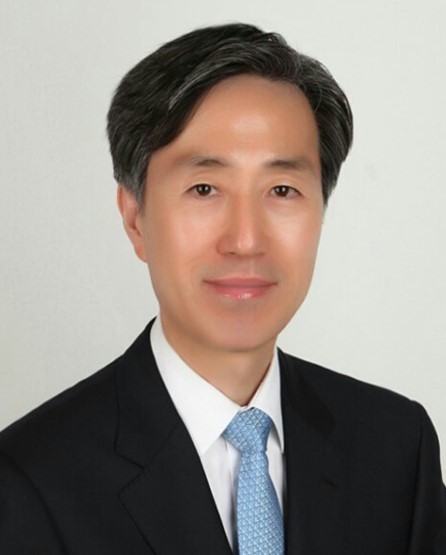
Dr. Tae-Yeon Seong received D.Phil. in materials science from the University of Oxford in March 1992. In 1994, he joined Gwangju Institute of Science and Technology (GIST). In 2005, he moved to the Department of Materials Science and Engineering, Korea University, where he served as Department Chair and Director for Brain Korea 21 Centre for Advanced Device Materials (2011-2016). He also served as Associate Dean of Research, College of Engineering, Korea University (2014-2015). He was president of Korea Society of Optoelectronics in 2014. He was also advisory committee member of Ministry of Education, Science and Technology of Korea (2005-2008). Dr Seong’s current research philosophy is focused on innovations in developing efficient device processing technologies and transparent electrodes for replacing ITO that bring new functionality to optoelectronic devices, such as LEDs and OLEDs, and characterizing semiconductor and electronic materials. Dr. Seong has authored or co-authored over 480 peer-reviewed journal papers and holds 240 patents issued or pending. He received the EPD Award by the Electrochemical Society (ECS) (2018), the Excellent Teaching Award, Korea Univ. (2011-2013), Excellent Technology Award, Korea Univ. (2012), and 10th Anniversary Research Award, GIST (2003). He is a fellow of Materials Research Society (MRS) (2018), ECS (2017), SPIE (2013), the Institute of Physics (UK) (2008).
Davood Shahrjerdi - Emerging Technologies and Devices
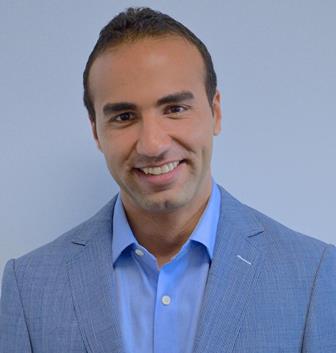
Davood Shahrjerdi, Ph.D., is an Assistant Professor of Electrical and Computer Engineering at New York University (NYU). He received the B.S. and M.S. degrees in electrical engineering from University of Tehran, Iran, in 2002 and 2004, respectively and the Ph.D. in solid-state electronics from The University of Texas at Austin in 2008. Before joining NYU in 2014, he was a Research Staff Member at IBM T. J. Watson Research Center. His research explores the science and technology of emerging nanomaterials and devices and their interfaces with silicon CMOS. He is the recipient of IBM Research Division award (2012), IBM Outstanding Technical Achievement award (2012), and IBM Master Inventor (2013).
Jianxin Tang - Optoelectronics, Display, Imaging
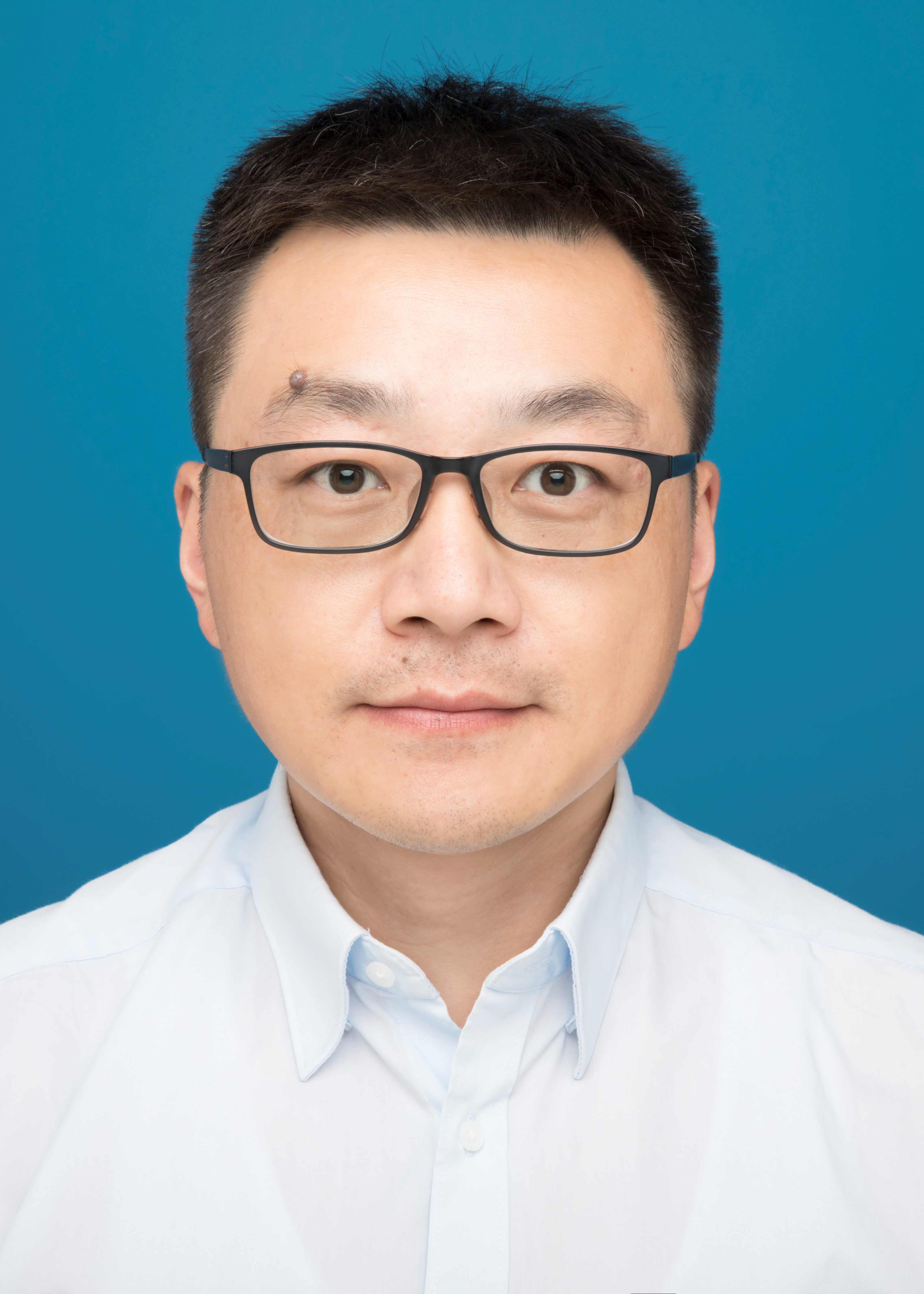
Jianxin Tang received his B.Sc. degree in Physics from Zhejiang University in 2002, and Ph.D. degree in Physics and Materials Science from City University of Hong Kong in 2006. In 2008, he was appointed professor at the Institute of Nano Functional & Soft Materials (FUNSOM), Soochow University. His current research areas/interests span device physics and surface science on organic/perovskite and flexible optoelectronics, including organic and perovskite electroluminescence technology for information displays and solid-state lighting, organic/perovskite photovoltaic cells for renewable energy and wearable intelligent sensors.
Huaqiang Wu - Memory Device and Technology, Emerging Technologies and Devices
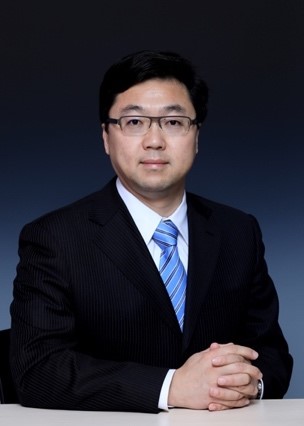
Dr. Huaqiang Wu is presently the director of the Department of Microelectronics and Nanoelectronics, and the director of the Institute of Microelectronics, Tsinghua University, Beijing, China. Dr. Wu has also served as the deputy director of Beijing Innovation Center for Future Chips. Dr. Wu received his Ph.D. degree in electrical and computer engineering from Cornell University, Ithaca, NY, in 2005. Prior to that, he graduated from Tsinghua University, Beijing, China, in 2000 with double B.S. degrees in material science & engineering and enterprise management. From 2006 to 2008, he was a senior engineer and MTS in Spansion LLC, Sunnyvale, CA. He joined Tsinghua University in 2009. Dr. Wu’s research interests include emerging memory and neuromorphic computing technologies. Dr. Wu has published more than 200 technical papers and owns more than 90 US and China patents. Dr. Wu’s papers have appeared on Nature, Nature Nanotechnology, Proceedings of the IEEE, IEEE EDL, ISSCC, IEDM, VLSI, etc. Currently, Dr. Wu serves as the Technical Program Chair (TPC) for 2021 EDTM conference and TPC member of VLSI Technology, DAC, VLSI-TSA, etc.
Yifeng Wu - Solid-State Power and High Voltage Devices; Compound Semiconductor Devices
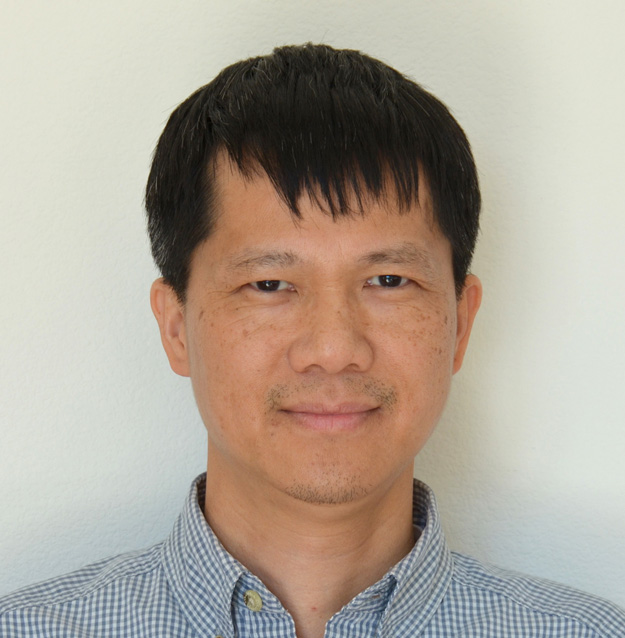
Dr. Yifeng Wu received his B.E. degree from Tsinghua University, Beijing in 1985, his M.S. degree in Mechanical Eng. and his Ph.D. degree in Electrical Eng. from the University of California at Santa Barbara in 1994 and 1997, respectively. He served as a lead scientist in GaN microwave and millimeter-wave power devices at WideGap Technology LLC and Cree Inc. for 11 years. He joined Transphorm Inc. in 2008, leading the engineering effort in developing GaN power conversion devices and applications. Since his early research on GaN high-electron-mobility-transistors (HEMTs) as a Ph.D. project in 1995, Dr. Wu has been active at the forefront of GaN power electronics with work from basic device discovery to cutting-edge device designs, from millimeter-wave power HEMTs to kV high-efficiency power switches. He demonstrated the first GaN microwave power transistor [EDL 1996] and multiple times extended the record of the highest power density of a solid-state transistor [EDL 1998, IEDM 1999, EDL 2004, DRC 2006]. He led an engineering team at Transphorm and succeeded in developing industry’s first Jedec-qualified 600V GaN-on-Si power device products [WiPDA 2013]. His team further demonstrated true kV-class GaN transistors exceeding vertical SiC performance, reaching an operation space unprecedented for horizontal devices [TPE 2014]. Dr. Wu holds 75 US patents and has authored significant papers resulting in >6500 citations in Google Scholar. He is a senior member of the IEEE (EDS).
Renzhen Xiao - Vacuum Electron Devices
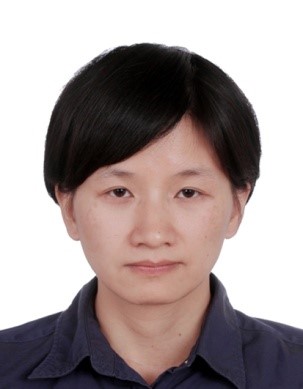
Renzhen Xiao received the B.S. degree in nuclear engineering and technology, Ph.D. degree in nuclear science and technology from Tsinghua University, Beijing, China, in 2002 and 2007, respectively.
Since 2002, she has been with the Northwest Institute of Nuclear Technology, Xi'an, China. She has authored over 80 refereed papers. Her representative works include the klystron-like relativistic backward wave oscillator, dual-mode relativistic backward wave oscillator, and phase locking of high power microwave oscillators. Her current research interests are relativistic electronics, high-power microwave and terahertz generation.
Huili Grace Xing - Compound Semiconductor Devices; Emerging Technologies and Devices
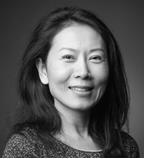
Huili Grace Xing is the William L. Quackenbush Professor of the School of Electrical and Computer Engineering (ECE) and the Department of Materials Science and Engineering (MSE) at Cornell University. She received her Ph.D. in ECE from the University of California, Santa Barbara, M.S. in MSE from Lehigh University and Bachelor in Physics from Peking University. From 2004 to 2014, she was a faculty at the University of Notre Dame; she joined Cornell in 2015. Her research focuses on development of III-V nitrides, 2-D crystals, oxide semiconductors, recently multiferroics & magnetic materials: growth, electronic and optoelectronic devices, especially the interplay between material properties and device development for high performance devices. She has co-authored 400+ journal/conference papers, 9 book chapters and 20+ issued/pending patents. She is a recipient of the NSF CAREER award, the AFOSR YIP award, the ISCS Young Investigator Award, and a fellow of APS, AAAS and IEEE. She previously served as the IEEE EDL editor in 2015-2018.
Shimeng Yu - Memory Devices and Technologies, Emerging Technologies and Devices
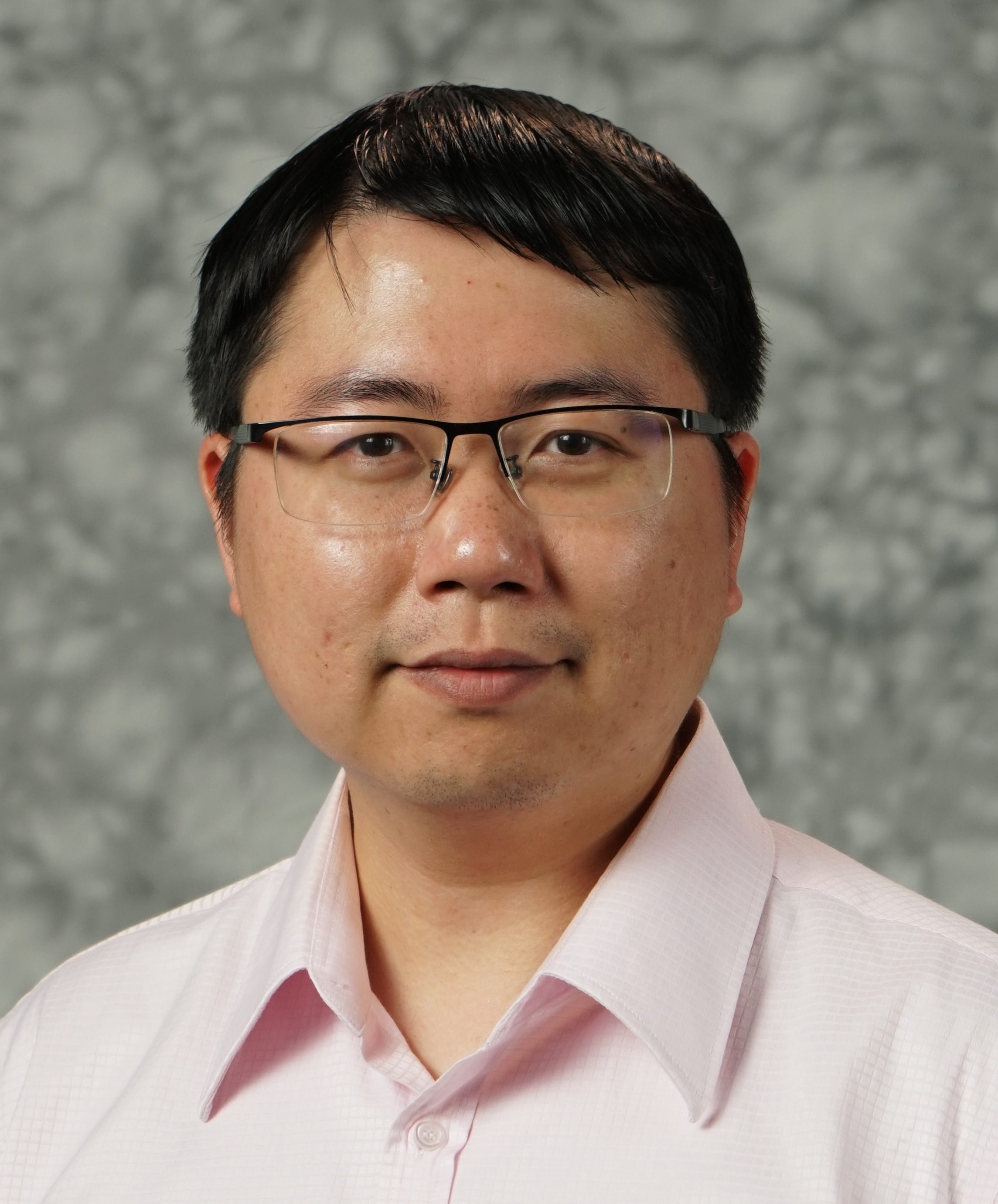
(USA)
Shimeng Yu is an associate professor of electrical and computer engineering at the Georgia Institute of Technology. He received the B.S. degree in microelectronics from Peking University in 2009, and the M.S. degree and Ph.D. degree in electrical engineering from Stanford University in 2011 and 2013, respectively. From 2013 to 2018, he was an assistant professor at Arizona State University. Prof. Yu’s research interests are nanoelectronic devices and circuits for energy-efficient computing systems. His expertise is on the emerging non-volatile memories (e.g., RRAM, ferroelectrics) for different applications such as deep learning accelerator, neuromorphic computing, monolithic 3D integration, and hardware security. Among Prof. Yu’s honors, he was a recipient of the NSF Faculty Early CAREER Award in 2016, the IEEE Electron Devices Society (EDS) Early Career Award in 2017, the ACM Special Interests Group on Design Automation (SIGDA) Outstanding New Faculty Award in 2018, the Semiconductor Research Corporation (SRC) Young Faculty Award in 2019, etc. Prof. Yu served the technical program committee of many EDS conferences including IEDM, Symposium on VLSI and IRPS. He is a senior member of the IEEE.
- Neuromorphic/Brain-inspired computing
Shengdong Zhang - Thin-Film Transistors & Optoelectronics, Displays, Imaging
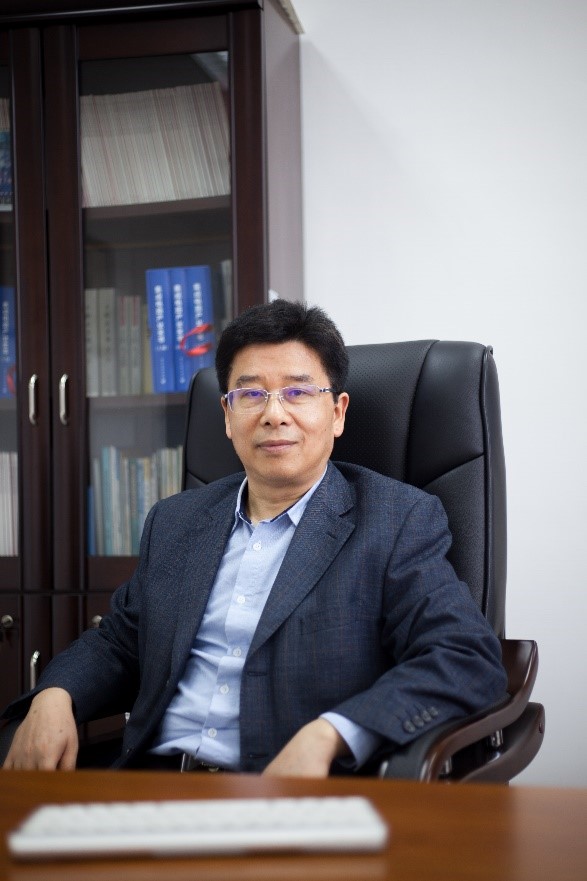
Shengdong Zhang received the BS degree in electrical engineering from Nanjing Institute of Technology (the predecessor of Southeast University), Nanjing, China, in 1984, the MS degree in microelectronics from Southeast University, Nanjing, China, in 1992, and the Ph.D. degree in microelectronics and solid-state electronics from Peking University, Beijing, China, in 2002.
He was a research engineer with Nanjing Institute of Electron Devices from 1984 to 1989 and from 1992-1996, and a visiting scholar at Hong Kong University of Science and Technology from 1996-1999. He joined the School of Electronics Engineering and Computer Science (EECS) of Peking University in 2002, where he has been a full professor since 2006, and the Dean of School of Electronic and Computer Engineering (ECE) at Shenzhen campus since 2016.
Throughout his career, Dr. Zhang has been involved in research on thin film transistors, display technologies, photo-sensors and integrated circuits. He has published over 150 academic papers in international journals, transactions and letters, and over 200 technical papers in international conferences. He holds more than 150 invention patents, including 26 US ones, some of which have been transferred to semiconductor and display industrial corporations in China, such as BOE, CSOT, SMIC and IVO. For his contribution to Chinese industry, Dr. Zhang has received a number of technical innovation awards from Chinese central and provincial governments.
Prof. Zhang presently serves as technical committee member of the Society of Information Display (SID), the Chinese National Technical Centre for Flat Panel Display Technology, and the Chinese National Engineering Lab of AMOLED. He is also a co-founder of Shanghai Institute of Microelectronics, Peking University, which was founded in Pudong Shanghai, in 2007.
- Publications
- Publications Committee
- Publication Representatives
- IEEE Guidelines for Authors
- Editorials for Authors and Reviewers
- EDS Newsletter
- IEEE Electron Devices Magazine
- Journal of Photovoltaics
- Transactions on Device and Materials Reliability
- Transactions on Semiconductor Manufacturing
- Journal on Flexible Electronics
- Journal of Lightwave Technology
- Transactions on Materials for Electron Devices
- Open Journal on Immersive Displays
- Electron Device Letters
- Journal of the Electron Devices Society
- Transactions on Electron Devices
- Journal of Microelectromechanical Systems
- Journal on Exploratory Solid-State Computational Devices and Circuits
- Journal of Electronic Materials
- EDS 50th Anniversary Booklet
- 75th Anniversary of the Transistor Book
- Electron Devices Reviews
